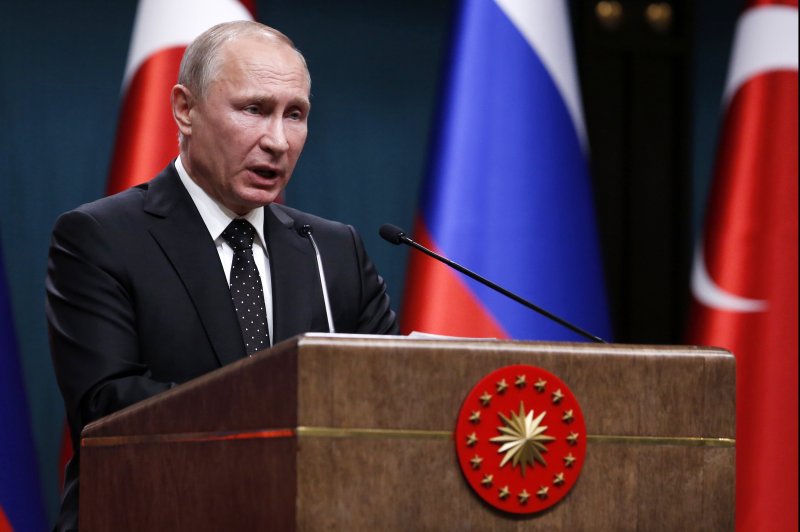The economy under Russian President Vladimir Putin sees inflationary pressures starting to ease, its Central Bank said. File photo by Tumay Berkin/EPA-EFE
Feb. 9 (UPI) -- Volatility in food and crude oil prices could drive inflation in either direction for Russia, though its Central Bank said Friday it was lowering its key rate.
The board of directors at the Central Bank of Russia said Friday it lowered its key rate 25 basis points to 7.5 percent annually, while maintaining something of an upbeat tone.
"Short-term pro-inflationary risks have abated," the bank said in a statement.
U.S. stock indices plummeted this week and have been highly volatile since last week's monthly jobs report showed average wage growth increased by its highest level in nearly a decade. That comes amid the potential for higher federal U.S. deficits and a slight drop in worker productivity, sparking fears about inflation in the world's largest economy.
For Russia, the economy is coming out of a recession that was triggered in part by U.S. sanctions and historically lower crude oil prices. Russia relies heavily on oil and gas revenue to support its economy and has seen incremental gains in production.
It's also party to an effort led by the Organization of Petroleum Exporting Countries, and is the largest non-member state contributor, to balance an oversupplied market with coordinated production cuts. Compliance with the deal has supported crude oil prices, though that market too has cooled off considerably since early January.
The price for Brent crude oil, the global benchmark, settled at multi-year highs last month, but is now below where it started the year.
The Russian bank said there were signs of a slowdown in the fourth quarter, but attributed that to unidentified "temporary factors."
"Depending on the situation, a number of factors may cause inflation to deviate from the target both upwards and downwards," the bank's statement read. "They include the dynamics of highly volatile food and oil prices."
Russia's Central Bank in January said year-over-year growth during the first half of the year won't accelerate much, even after its economic development minister said in January that gross domestic product could hit 3 percent with the right policies in place.
Annual growth in GDP is expected at between 1 and 1.5 percent.















